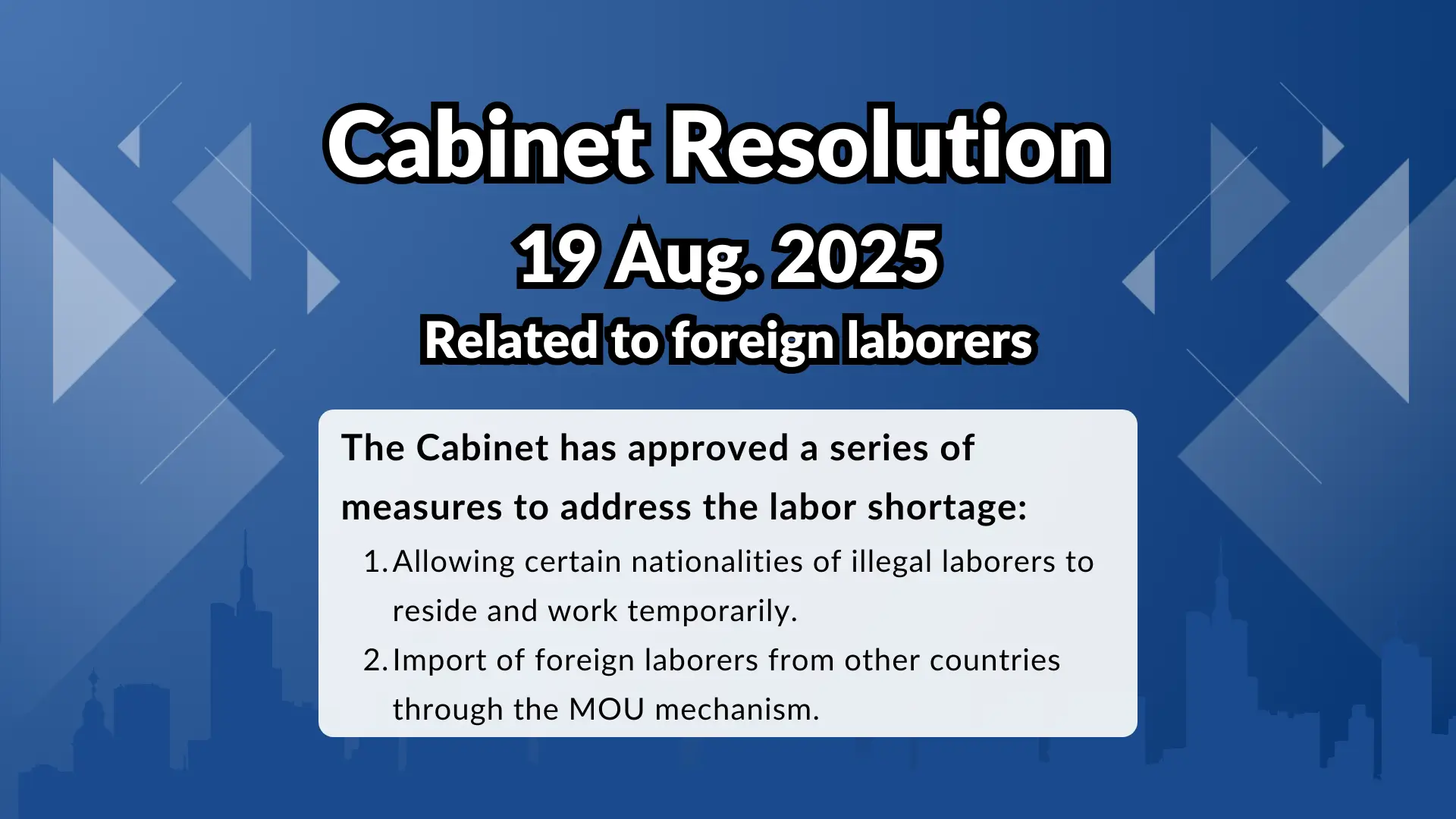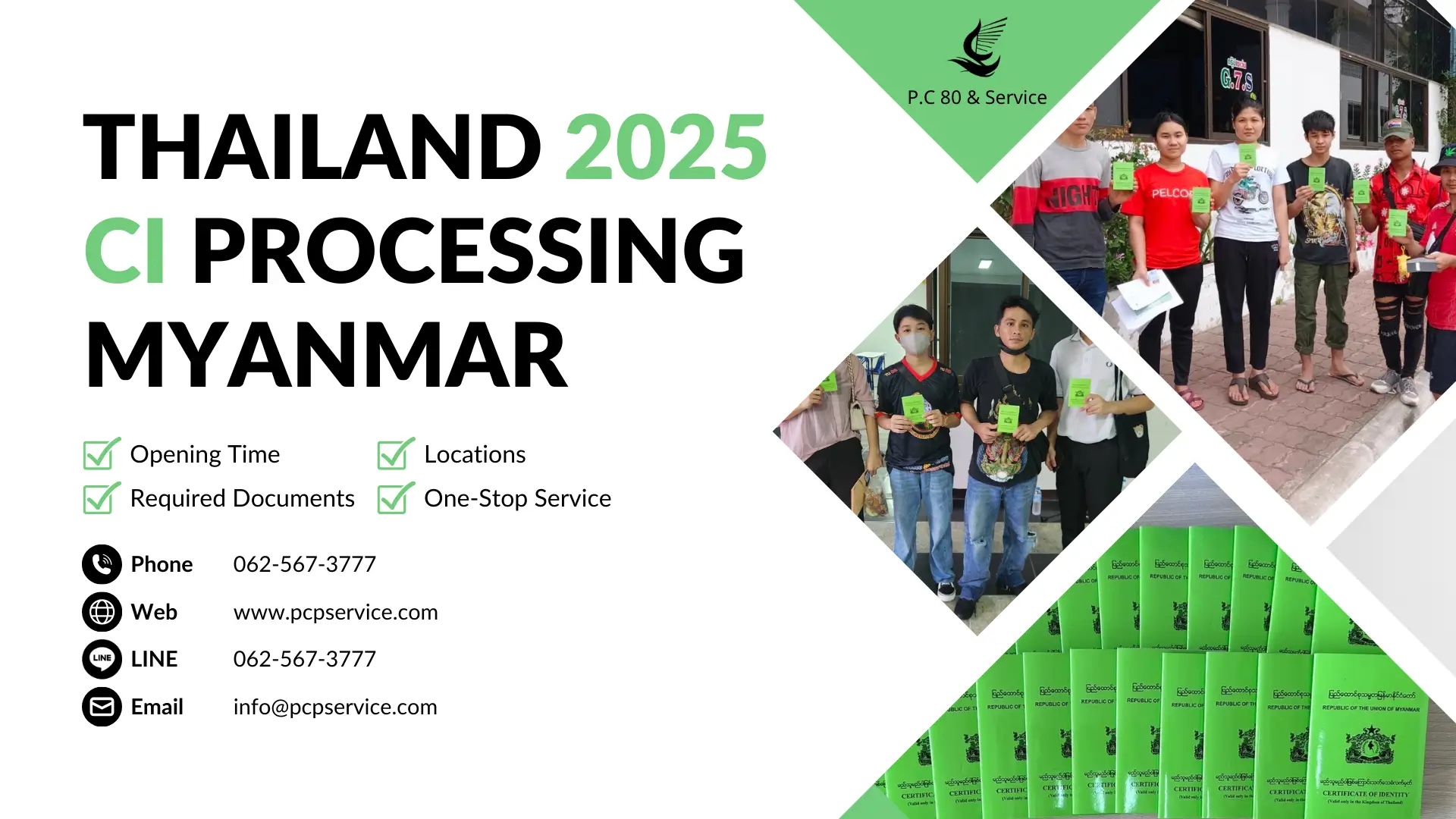Due to internal unrest in Myanmar leading to increased illegal entry and employment, coupled with border conflicts in Cambodia prompting some laborers to return to their home country, Thailand is facing a severe labor shortage. The Cabinet has approved two measures: First, regulating the management of irregular foreign laborers, granting a one-year legal work opportunity to illegal entrants or laborers from Cambodia, Laos, Myanmar, and Vietnam who failed to renew their work permits on time. Second, importing foreign laborers of other nationalities through the Memorandum of Understanding (MOU) mechanism, starting with a pilot program to bring in 10,000 Sri Lankan laborers, with plans to import laborers from Nepal, Bangladesh, Indonesia, and the Philippines in the future to address the labor shortage and ensure economic stability.
1. Background and Issues
- Unrest in Myanmar: Leading to illegal entry and employment of some Myanmar nationals in Thailand.
- Instability at the Thai-Cambodia Border: Causing some Cambodian foreign laborers (22,546 individuals) to return to their home country.
- Failure to Complete Work Permit Renewals: Approximately 388,041 foreign laborers (including 98,548 Cambodians, 91,489 Laotians, 194,441 Myanmar nationals, and 3,573 Vietnamese) have work permits expiring on February 13, 2025, but some have failed to renew their permits on time or fully complete the process.
2. Solutions
The Cabinet has approved a series of measures to address the labor shortage, divided into two main components:
- Management of illegal foreign laborers: Allowing certain nationalities of illegal laborers to reside and work temporarily.
- Import of foreign laborers from other countries through the MOU mechanism: Providing new options for employers to manage their workforce.
3. Key Measures and Implementation Details
Management of Illegal Foreign laborers
The Cabinet has approved guidelines for managing illegal foreign laborers, aiming to grant leniency to certain illegal laborers and allow them to temporarily reside and work in Thailand.
- Target Groups:
- Foreign laborers from Cambodia, Laos, Myanmar, and Vietnam: Those holding expired or stamped passports/substitute documents, but whose work or residence permits have expired and who have not left the country (overstay).
- Cambodian, Laotian, and Myanmar nationals who illegally entered Thailand before the Cabinet’s approval and wish to work.
- Legalization Pathways and Procedures:
- Employer Applications: Employers must submit lists of foreign laborers and work permit applications, paying the required fees within 15 days.
- Health and Insurance Requirements: Submit documents such as medical certificates, health insurance proof, or social security registration proof (as applicable) to provincial employment offices.
- Personal Data Collection: Foreign laborers must undergo personal data collection at locations designated by the Immigration Office.
- Additional Requirements for Cambodian laborers: Cambodian laborers must report to immigration officers within 60 days initially and every 60 days thereafter to comply with national security requirements.
- Residence Permits and Visas: Laotian, Myanmar, and Vietnamese laborers with valid passports or substitute documents can apply for temporary residence permits matching the duration of their work permits at designated Immigration Office locations. Those without such documents must obtain them and apply for a visa.
- Work and Residence Duration:
- Successfully processed illegal foreign laborers will receive a one-year work permit and temporary residence permit.
- Accompanying Children:
- Children of foreign laborers under 18 years old may reside in Thailand based on their parents’ rights.
- If accompanying children reach 18 years old and wish to work, they may be granted a special 60-day residence permit to apply for a work permit.
Guidelines for Importing Foreign Laborers of Other Nationalities
To further address the labor shortage, the Cabinet has approved the import of foreign laborers from other nationalities through the MOU system.
- Initial Focus:
- The first phase will import 10,000 Sri Lankan laborers as pilots to fill the gap left by Cambodian laborers who returned to their country.
- If the importing of Sri Lankan laborers proceeds smoothly and employers have additional demand, the Labor Ministry will propose to the Foreign laborer Management Policy Committee for approval and report to the Cabinet.
- Once negotiations between the two countries are finalized, the Labor Ministry will seek Cabinet approval, authorizing the Labor Minister to sign an MOU with Sri Lanka.
- Future Plans:
- Potential nationalities for future importing include Nepal, Bangladesh, Indonesia, and the Philippines.
- laborers importing through the MOU system will receive a 2-year work permit, renewable for another 2 years, under the same principles as other MOU laborers.
These measures demonstrate the Thai government’s commitment to addressing the labor shortage through flexible and comprehensive policies, including the legalization of existing illegal laborers and the proactive establishment of new international labor sources to support sustained economic growth and enhance national competitiveness.





